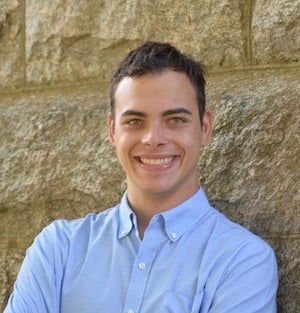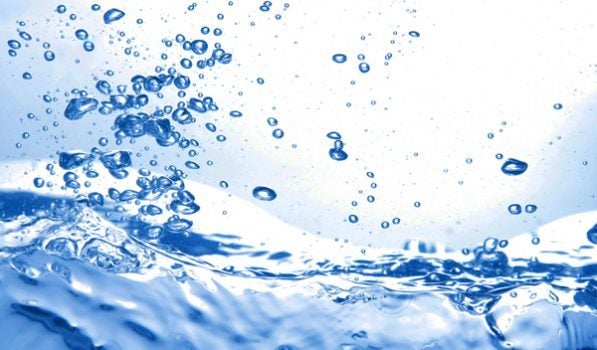What could the study of migratory bird patterns have in common with power grid defense? For many, the answer wouldn’t be obvious. However, for those who study physics, such as Erik Carlson ’20, now a Ph.D. student in URI’s College of Arts & Sciences (A&S), physics is the evident bridge between these different fields of study and many more. Carlson is earning his Ph.D. in Astrophysics, and aside from his draw to the plethora of project possibilities physics offers, he has always been especially fascinated with the sky. “I got my pilot’s license before I could drive. I always looked up at the sky and the stars and I kept my passion for aerospace,” he says. Carlson graduated from URI in 2020 with a double major in Physics and Mathematics — a journey that took three school changes and four major changes. Once he found his home in physics, he became highly active researching black holes and galaxies, which familiarized him with radio waves and telescopes. These hands-on experiences prepared Carlson to undertake one exceptionally major project he currently works on.
Oddly enough, Carlson’s advisor met with a woman during a duck sale who worked for the U.S. Fish and Wildlife Service and happened to be looking for a consultant familiar with radio antennas. Carlson — having had more than sufficient experience at URI — became involved in research to create federal guidance on the best methodology and practices to monitor endangered species in offshore wind environments. The project currently focuses on the Block Island Wind Farm to inform the future deployments of offshore wind farms across the eastern seaboard as well as to develop tools for ecologists and biologists to study endangered animals. Carlson explains, “We’re encouraging this transition to green energy while also making sure we’re environmentally conscious of the impact on the ecosystems we’re deploying these turbines in.” The study of wind turbine impact also extends to whale populations and commercial fisheries.
During his Ph.D. experience, Carlson has continued to feel the culture of support that exists in A&S. He has found that there is an open culture of collaboration encouraged between departments and even between colleges. “There is a lot of support for cross collaboration between departments, as opposed to competition that other universities may have, allows for different minds to tackle the same problem.” In the spring, Carlson will tackle a project on power grid defense and hacking prevention, which emphasizes what he loves about studying physics. “You’re not locked into one project in particular,” he says. ‘“Somethings I learn in the classroom might not directly apply to a particular real-world problem, but it’s all about developing those base skills. When I’m working on something in my research, I have that knowledge in the back of my head to produce some of the models I’m working on.” With that in mind, he has no intentions to limit his possibilities and sees himself working on a variety of projects moving forward.
~Written by Sabrinna Fogarty


